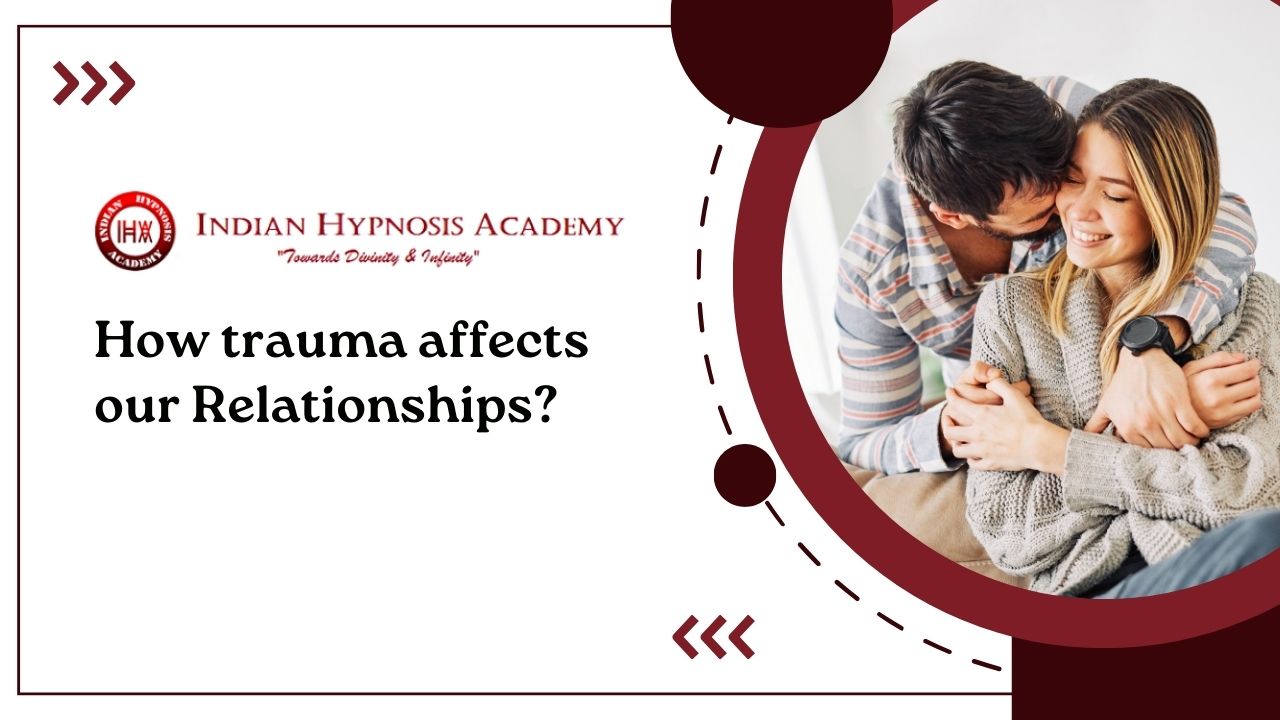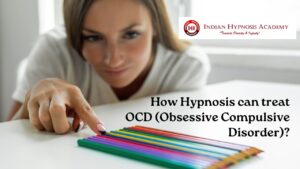Welcome to a deep dive into the intricate web of relationships and the lingering effects of unhealed trauma. Trauma, whether big or small, can cast a shadow over our connections with others, affecting how we communicate, trust, and find intimacy in our relationships. Join us as we explore the impact of unresolved past wounds on the present dynamics of our closest bonds. Let’s unravel the complexities together!
Understanding Trauma and its Impact
Trauma can come in many forms, from childhood experiences to adult life events, leaving a lasting imprint on our minds and hearts. It’s not just about physical wounds; emotional scars can run deep, shaping how we perceive ourselves and others. The impact of trauma goes beyond the surface, seeping into every aspect of our being.
Understanding trauma means acknowledging its power to influence our thoughts, behaviors, and relationships. Even if we try to bury it deep within us, unresolved trauma has a way of resurfacing when triggered by certain events or interactions. It’s like a silent force that guides our reactions without us even realizing it.
By delving into the depths of our past pain and recognizing how it manifests in the present moment, we gain insight into why we may struggle in certain areas of our lives. Trauma is not just a memory; it’s an intricate web woven into the fabric of who we are today.
The Effects of Unhealed Trauma on Relationships
Trauma, if left unhealed, can seep into our relationships like a shadow lurking in the background. It has the power to shape how we interact with our partners, often without us even realizing it. Unresolved trauma can lead to emotional distance and difficulty in expressing vulnerability. This may result in misunderstandings, conflicts, and a lack of emotional connection.
The effects of unhealed trauma on relationships can manifest as patterns of behavior such as avoidance or aggression during conflict resolution. These behaviors stem from deep-rooted triggers that are often connected to past traumatic experiences. As a result, communication breakdowns become more frequent, leading to feelings of frustration and isolation within the relationship.
Moreover, individuals carrying unhealed trauma may struggle with trust issues and intimacy barriers in their relationships. The fear of being hurt again or abandoned can create walls that prevent genuine closeness from developing between partners. This cycle perpetuates feelings of unworthiness and inadequacy – further straining the bond between two people striving for love and understanding.
It is crucial to acknowledge these impacts so that steps towards healing can be taken both individually and together as a couple. By recognizing how unhealed trauma affects our relationships, we open doors to empathy, patience, and growth – essential elements for building strong foundations rooted in mutual respect and compassion.
Communication Issues in Relationships Due to Unhealed Trauma
Communication is the foundation of any healthy relationship. However, when unhealed trauma lingers beneath the surface, it can create barriers to effective communication.
Individuals who have experienced trauma may struggle to express their emotions and needs clearly, leading to misunderstandings and conflict in relationships. They may also have difficulty trusting others with their innermost thoughts and feelings.
Moreover, unresolved trauma can manifest in unhealthy communication patterns such as avoidance, aggression, or passive-aggressiveness. These behaviors can further strain relationships and hinder meaningful connection.
It’s essential for partners to acknowledge the impact of unhealed trauma on communication and work together to cultivate a safe space for open dialogue. Seeking therapy or counseling can provide valuable tools for improving communication skills and fostering understanding between partners.
Trust and Intimacy Challenges Caused by Unhealed Trauma
Trust and intimacy are essential pillars in any relationship, creating a strong foundation for connection. However, unhealed trauma can significantly impact these aspects, leading to challenges that affect the bond between partners.
Individuals with unhealed trauma may struggle to trust others fully, fearing vulnerability and potential harm. This lack of trust can create distance in relationships as they struggle to open up and connect on a deeper level.
Intimacy challenges may arise from unaddressed trauma as well. Emotional walls built to protect oneself from past pain can hinder genuine intimacy and emotional closeness with a partner.
Navigating these trust and intimacy issues requires patience, understanding, and often professional support. Partners must communicate openly about their feelings and fears while actively working towards healing together.
By addressing the root causes of unhealed trauma, individuals can gradually rebuild trust within themselves and their relationships, fostering deeper connections based on honesty and vulnerability.
Coping Mechanisms in Relationships with Unhealed Trauma
Coping with unhealed trauma in relationships can be challenging. Many individuals develop coping mechanisms to navigate their emotions and triggers. Some may withdraw or avoid conflict altogether, while others may become overly controlling or defensive. These coping strategies often stem from a place of self-protection but can create distance and misunderstandings in relationships.
Engaging in open and honest communication is key to navigating these challenges. It’s important for partners to express their needs and boundaries clearly, allowing space for understanding and empathy. Seeking therapy together or individually can also provide valuable tools for healing and growth.
Self-care practices such as mindfulness, journaling, or exercise can help manage stress and regulate emotions. Building a support network of friends, family, or support groups can offer additional resources for processing trauma.
Remember that healing is a journey that requires patience and compassion towards oneself and others involved in the relationship. By acknowledging the impact of unhealed trauma on your dynamics, you’re taking an important step towards fostering healthier connections.
Healing and Overcoming the Effects of Unhealed Trauma on Relationships
Healing from unhealed trauma is a journey that requires patience, understanding, and support. It’s crucial to acknowledge the impact of past experiences on our current relationships and actively work towards healing those wounds.
Taking the time to reflect on how trauma has influenced your behavior and emotions can help you develop healthier coping mechanisms in your relationships. Engaging in therapy or counseling can provide valuable tools and insights to navigate the challenges that arise from unhealed trauma.
Self-care practices such as mindfulness, exercise, and creative outlets can also contribute to your healing process. Building a strong support system of friends, family, or support groups can offer additional encouragement and perspective.
Remember that healing is not linear – there may be setbacks along the way but staying committed to your growth will ultimately lead to stronger and more fulfilling relationships.
Seeking Professional Help for Healing and Strengthening Relationships
Seeking professional help for healing and strengthening relationships can be a vital step towards overcoming the effects of unhealed trauma. Therapists specialized in trauma-informed care can provide valuable support and guidance to navigate the complexities that unresolved trauma brings into relationships.
Through therapy, individuals can learn effective coping strategies, improve communication skills, and develop a deeper understanding of how their past experiences may be influencing their current relationships. A therapist creates a safe space for both partners to explore their emotions, vulnerabilities, and triggers without judgment.
Therapeutic interventions such as EMDR (Eye Movement Desensitization and Reprocessing) or cognitive-behavioral therapy can aid in processing traumatic memories and changing negative thought patterns that impact relationship dynamics. With the help of a skilled therapist, couples can work towards building trust, fostering intimacy, and creating healthier patterns of relating to one another.
Professional guidance offers tools for resolving conflicts constructively, enhancing emotional connection, and promoting mutual growth within the relationship. Therapy is not about fixing what’s broken but rather about fostering resilience, understanding each other better, and cultivating stronger bonds based on empathy and compassion.
Conclusion
It is crucial to recognize the profound impact unhealed trauma can have on our relationships. From communication breakdowns and trust issues to coping mechanisms that may not serve us well, unresolved trauma can create significant challenges in maintaining healthy connections with others.
However, there is hope. By acknowledging the effects of unhealed trauma and actively working towards healing and overcoming these obstacles, we can strengthen our relationships and cultivate deeper intimacy and trust. Seeking professional help from therapists or counselors who specialize in trauma can provide valuable support and guidance on this journey towards healing.
Remember, you are not alone in this process. With patience, self-compassion, and a commitment to growth, it is possible to navigate the complexities of unhealed trauma and build stronger, more fulfilling relationships with those around us.




